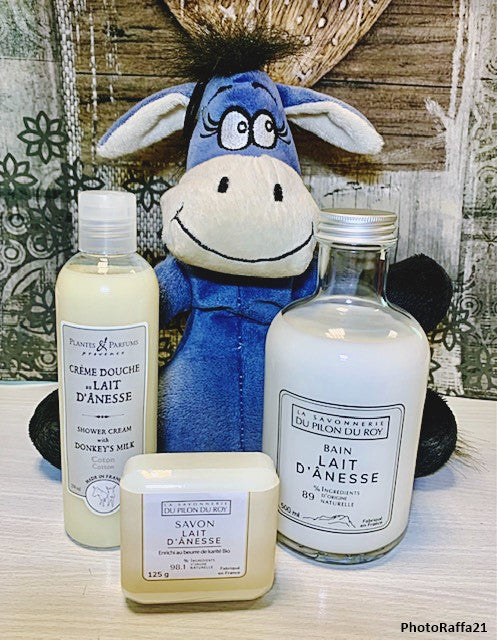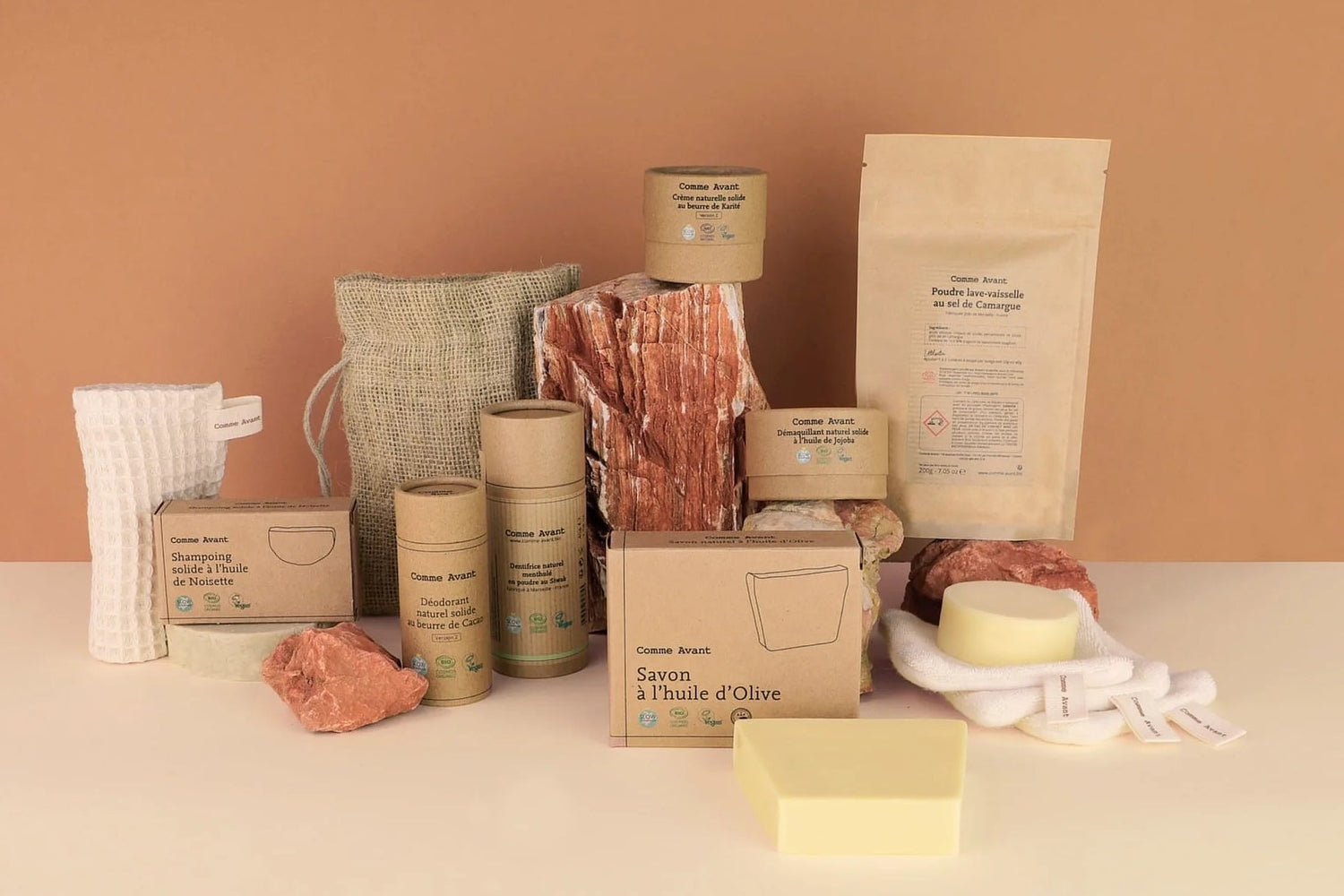
Donkey milk has a very similar composition to mother's milk, which is why it was once used (especially in the 19th and early 20th centuries) to feed newborns whose mothers could not breastfeed. If we go even further back, the Greeks, Romans, Egyptians and more particularly their queens concerned about their beauty (Nefertiti, Cleopatra, Poppea ...), used donkey milk to preserve the youth of the epidermis and its compactness. It is said that Cleopatra had at her disposal a herd of 700 donkeys which provided her with the milk she needed for her daily rejuvenation.
A wealth of nutrients which gives it many virtues for the epidermis
Donkey milk is rich in vitamins (A, B, C, D, E), mineral salts (especially phosphorus and calcium), carbohydrates, essential fatty acids and phospholipids (a type of fat that makes up the cell membrane). Used in skin care, it is regenerating, restructuring, emollient, nourishing and rebalancing. It thus preserves the skin from sagging while retaining all its elasticity.
Donkey milk fights skin problems in fact it contains alkyl glycerol, a substance that acts on the regulation of immune reactions. On the other hand, it is rich in lysozyme, a natural antiseptic (intended to protect milk from viruses and bacteria). For these two reasons it helps to treat eczema, psoriasis, acne and various allergic skin reactions. It is therefore suitable for atopic skin or skin prone to redness. Its dermal tolerance is exceptional, very well supported by the most sensitive skins.
Donkey milk cosmetics: body milks, creams, soaps and hair conditioners
There are various cosmetic products based on donkey milk (preferably obtained from fresh or powdered milk): body milks , face creams , balms but above all soaps , shower gels and shampoos . These different products contain between 5 and 40% donkey milk and are generally formulated without EDTA or parabens. For soaps , my advice is to always prefer those made with natural ingredients: vegetable oil and donkey milk. Some soaps also contain essential oils, but avoid soaps whose composition mentions artificial colors and synthetic fragrances.
Donkey milk cosmetics are usually more expensive than others, why? Simply because donkey farms (asinerie) are still few and small. Donkey's milk is a rare and delicate resource to obtain it it is essential to respect the animal's natural cycle, for example it is necessary to keep the foal with its mother until weaning around 10 months of age. Furthermore, donkeys only provide 1 to 1.5 liters of milk per day, so farmers must be careful to manage the milk so that the little one gets plenty of it.





